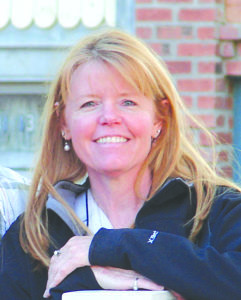Volunteering can help seniors to stay active and maintain physical and mental health.
One of the main benefits of volunteering for seniors is the opportunity to socialize and make new friends. According to a study by the Corporation for National and Community Service, older adults who volunteer have higher levels of social connectedness, which can help to combat feelings of isolation and loneliness.
Loneliness is a growing public health concern that affects individuals of all ages and backgrounds. Loneliness is defined as a subjective feeling of social isolation, and it can have a significant impact on an individual’s physical and mental well-being. Studies have shown that loneliness is associated with an increased risk of chronic health conditions such as heart disease, stroke and Alzheimer’s disease. It can also lead to depression, anxiety and suicide.
To combat loneliness, it is important to prioritize social connections and make an effort to build and maintain relationships. This can include joining clubs or groups that align with your interests, volunteering in your community, and spending time with friends and family. It is important to engage in face-to-face interactions.
Volunteering can help seniors to stay active and maintain physical and mental health. Volunteering can also provide an opportunity for seniors to continue to learn and grow by taking on new challenges and learning new skills.
A few benefits to volunteering in your senior years include:
- Keeping mentally and physically active by providing a sense of purpose.
- Building new connections and friendships.
- Staying engaged in the community.
- Improving physical and mental health.
- Making a positive impact, giving back to your community and others.
- Keeping skills sharp and learning new skills.
- Reducing stress and loneliness.
Polara Health’s Senior Peer Program is a volunteer-based community outreach program for isolated seniors. The program is designed for ages 60+ and encourages connection. The Senior Peer Program also provides FREE community support groups for blind/low vision, a men’s group, a women’s group and a mindful meditation group. A grief and support group is in the planning process and will be added shortly.
Senior Peer Program Manager Melanie Jacobson is growing the program based on our community needs. “Our senior population is a vulnerable population and our goal is to combat loneliness and isolation and to increase happiness and connection,” she said. Polara Health’s Senior Peer Program is in need of volunteers! QCBN
By Deanna Eder
To learn more, please to go www.polarahealth.com or contact Melanie Jacobson at m.jacobson@polarahealth.com or 928-445-5211 ext. 2035.
Starting off in 2023, Melanie will teach a workshop called “The Seven Habits of Happiness” on Feb. 15, at the Prescott Library. We have collaborated with United Way of Yavapai County to provide this workshop. For more information or to register, go to www.yavapaiuw.org and register on the Events page. This is a free event available to all in our community.
Deanna Eder is the director of marketing and communications with Polara Health. www.polarahealth.com.







